
Photographica Pages
An online guide to collectable cameras and related stuff
Zeiss Ikon Super Ikonta A
The Super Ikonta A was brought out in 1934, along with it's bigger brother, the Super Ikonta C in 1934.
Designed to take 16 exposures 4.5 x 6cm on 120 film, it was a very compact camera capable of
creating high quality images. This format was one of the two that did not carry a suffix on the product
code (the other was 22 x 31mm found on the Bobette series of folding cameras).
The first model of Super Ikonta A was the 530. It is usually found with a 70/3.5 Tessar. All versions of
the Super Ikonta A have a rotating wedge rangefinder with the rangefinder wedge located on an arm
attached on a pivot to the lens board. The arm folds for storage. The lenses are uncoated, and the
camera lacks a body release, double exposure prevention and flash synch.
In 1937 the model number is changed to 531. The camera now has a body release which has double
exposure prevention. The finder is now an Albada finder. Lenses are usually 75/3.5 Tessar, but some
were sold with Novar lenses, and in 1948 only they were sold with Schneider Xenar lenses. Postwar
cameras have coated lenses.
About 1950 the finish of the top plate was changed to satin chrome. Flash synch was available on the
Compur-Rapid, X synch until 1952, then MX synch. The latest version has the Synchro Compur shutter.
The camera was discontinued in 1956.
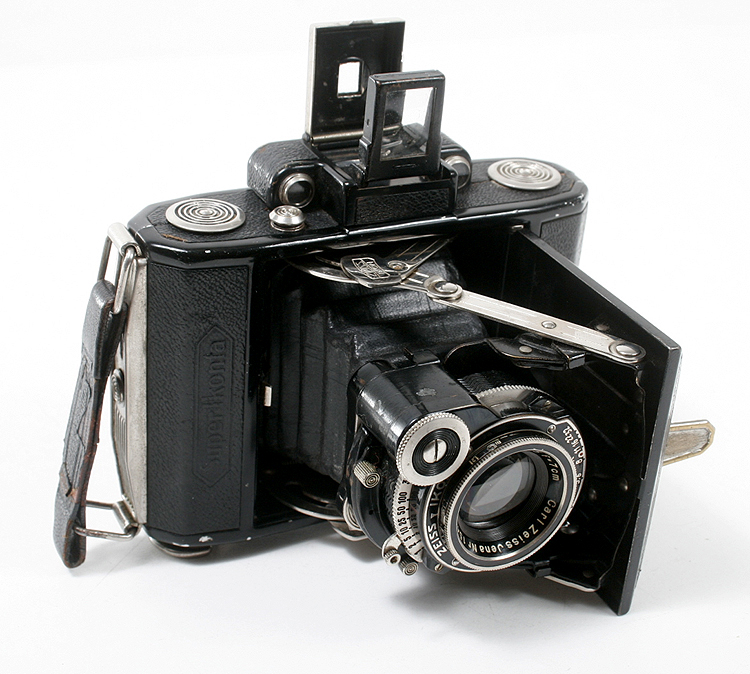
The Super Ikonta A 530.
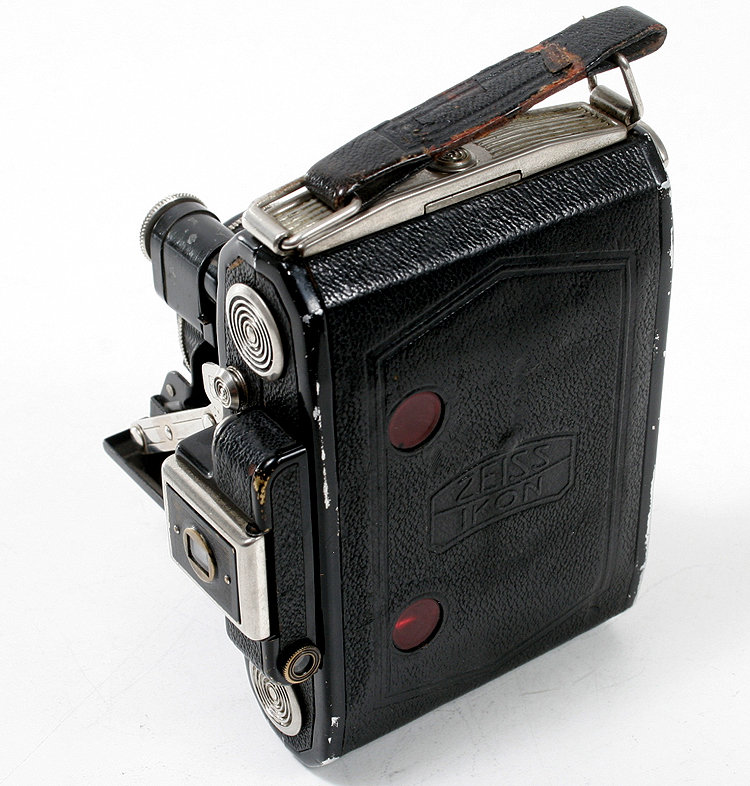
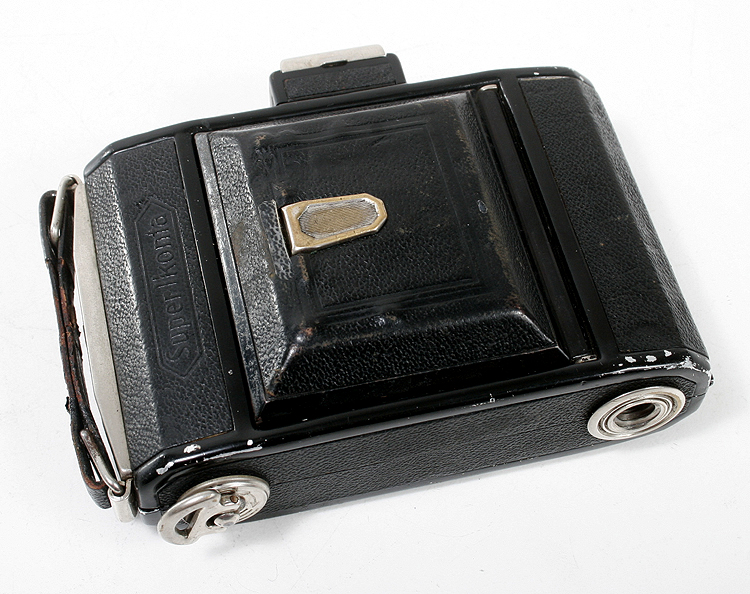
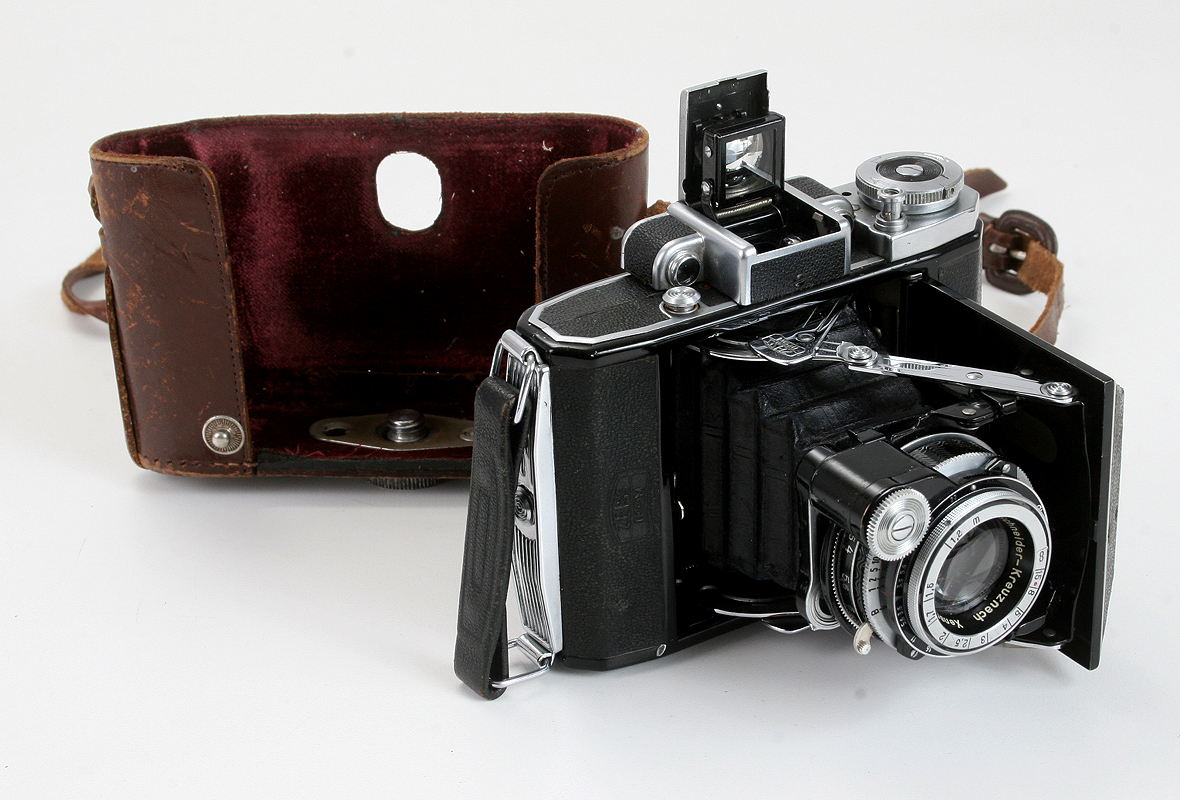
The Super Ikonta A 531.
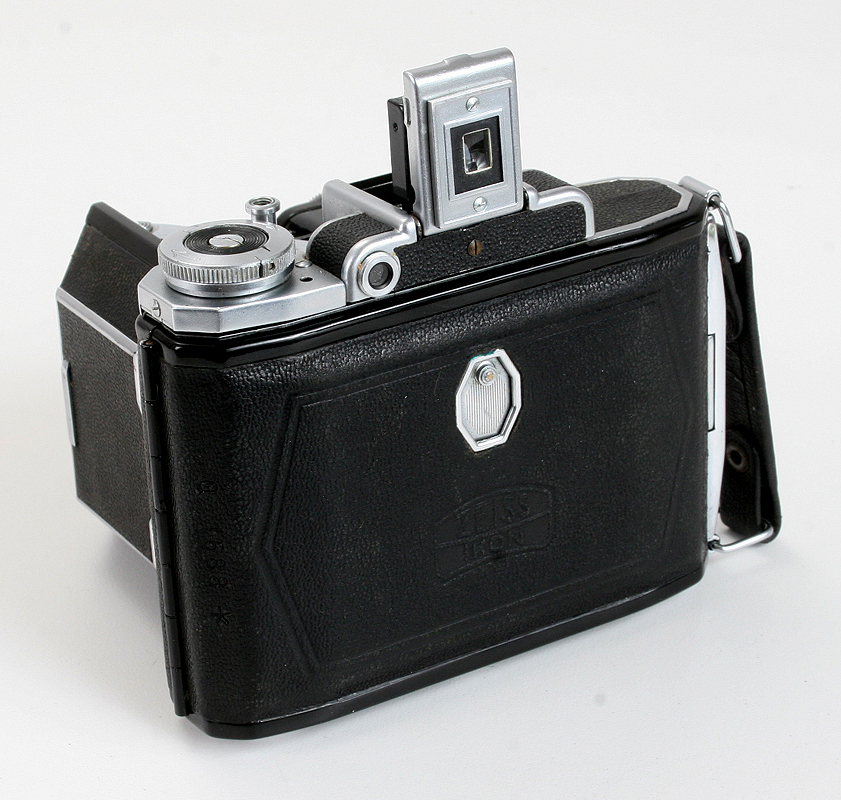
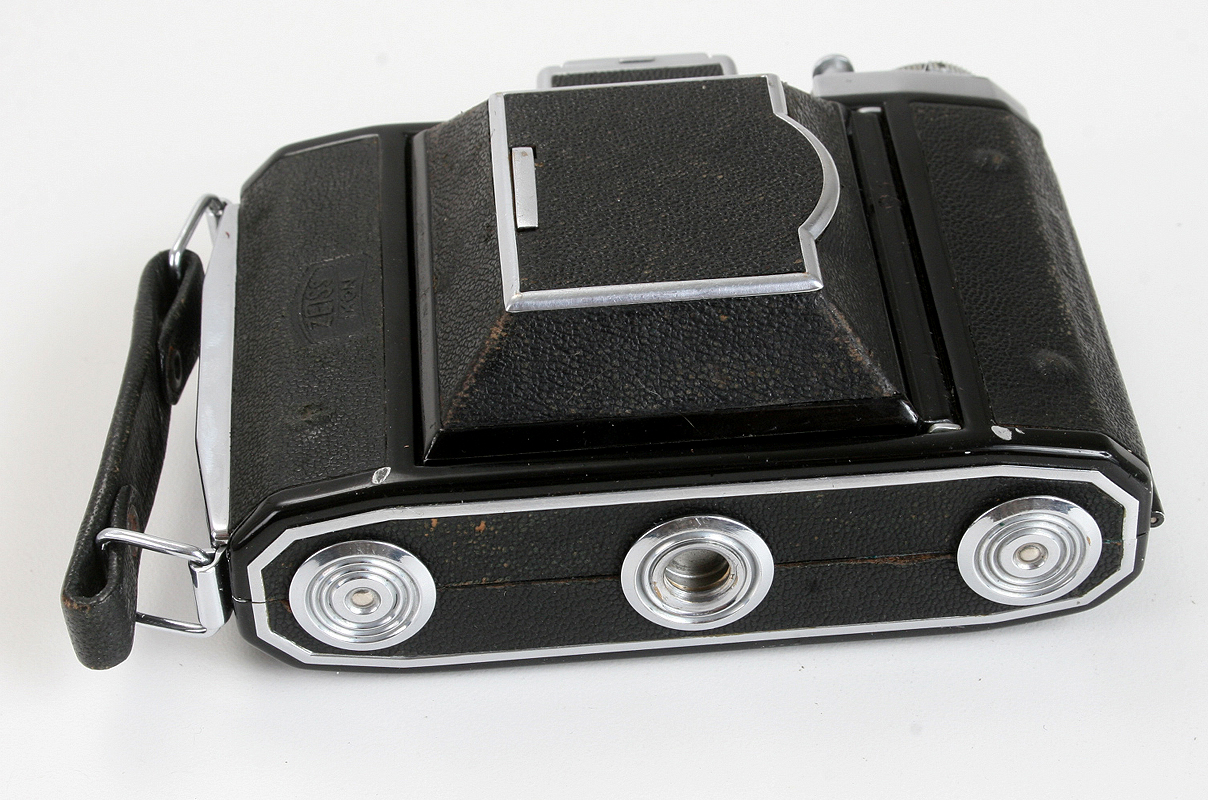

The Super Ikonta A 530.



The Super Ikonta A 531.


